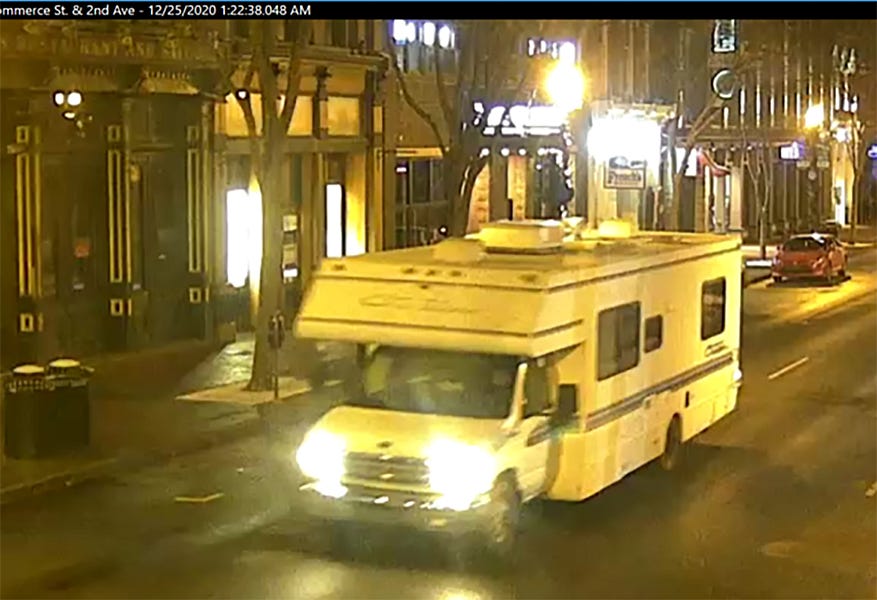After a recreational vehicle in downtown Nashville exploded on Christmas morning, rumors about the cause of the explosion have been circulating on social media. One such theory, shared via a video from BitChute claims that the explosion was caused by a missile strike. The video is captioned as follows: “Surveillance video proves missile strike on Nashville.”
The video, which shows unclear footage of an explosion, claims to be a “surveillance video obtained by WKRN-TV. from BlastAway Sand Blasting proves that a missile, or directed energy weapon, not a car bomb destroyed the AT & T Building in Nashville, Tennesee [sic] on Christmas morning. The attack destroyed critical components related to upcoming the 2020 election in Georgia.”
This is a false claim. The explosion in Nashville was not caused by a missile strike but was indeed caused by a vehicle explosion.
On December 25, several hours after the explosion, the Nashville Police Department identified a photo of the RV and tweeted a picture of the vehicle saying that it “exploded on 2nd Ave N this morning. It arrived on 2nd Ave at 1:22 a.m.”
The New York Times reported that a man named Anthony Quinn Warner was responsible for the bombing and that DNA tests performed on human remains from the explosion match Warner’s. Per the Times, the U.S. attorney for the Middle District of Tennessee confirmed at a press conference on Sunday that Warner was indeed the “bomber.” Law enforcement agents do not have any evidence to suggest others were involved in the bombing.
Furthermore, the metro Nashville police released footage of the explosion, which shows the RV in sight right before the explosion occurred.
Phil Williams, a reporter for NewsChannel 5, a CBS affiliate in Nashville, took to Twitter to clarify what he called a “FALSE conspiracy theory about a Nashville missile” using this same footage of the explosion as evidence:
If you have a claim you would like to see us fact check, please send us an email at factcheck@thedispatch.com. If you would like to suggest a correction to this piece or any other Dispatch article, please email corrections@thedispatch.com.







Please note that we at The Dispatch hold ourselves, our work, and our commenters to a higher standard than other places on the internet. We welcome comments that foster genuine debate or discussion—including comments critical of us or our work—but responses that include ad hominem attacks on fellow Dispatch members or are intended to stoke fear and anger may be moderated.
With your membership, you only have the ability to comment on The Morning Dispatch articles. Consider upgrading to join the conversation everywhere.